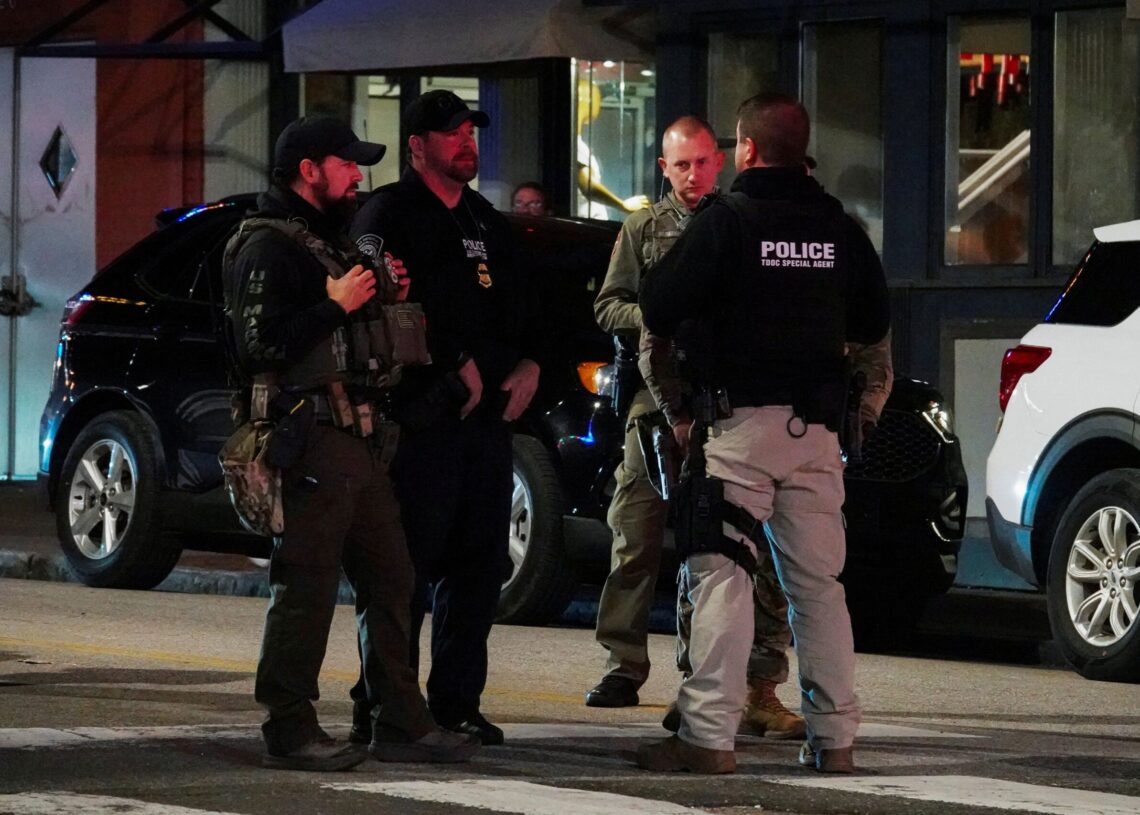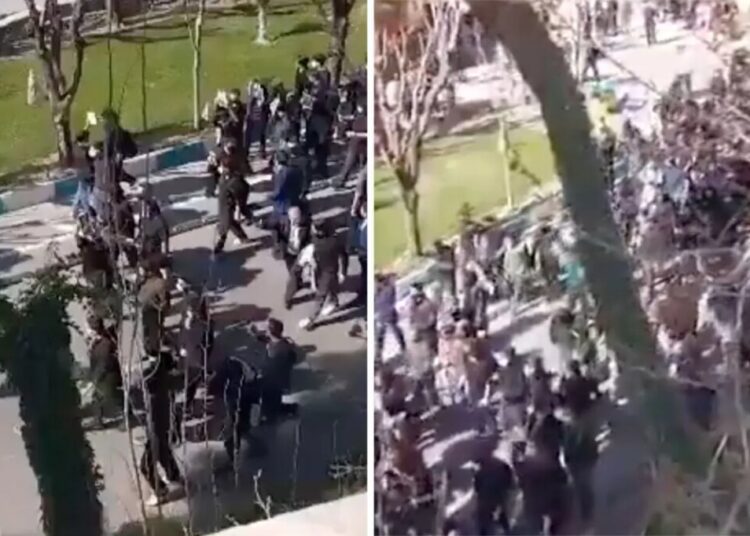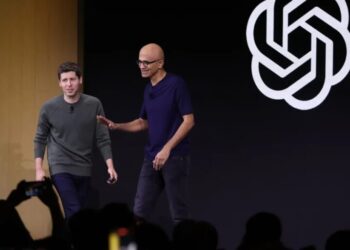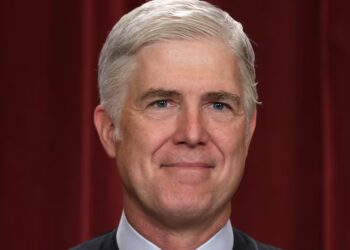MEMPHIS — Since late September, nearly 2,000 state and federal law enforcement officers have surged onto the streets here, helping drive down crime rates. But the crackdown has also sparked tensions in this majority-Black city, with local officials warning of jail overcrowding and racial profiling.
More than 2,100 people have been arrested, and serious crime, including homicides and robberies, has plummeted. Memphis police credit federal agents with helping them find elusive criminals and serve outstanding warrants in a city that has long faced one of the highest violent crime rates in the country. More drivers are renewing their vehicle tags just to avoid being pulled over amid a dramatic uptick in traffic stops.
MEMPHIS — Since late September, nearly 2,000 state and federal law enforcement officers have surged onto the streets here, helping drive down crime rates. But the crackdown has also sparked tensions in this majority-Black city, with local officials warning of jail overcrowding and racial profiling.
More than 2,100 people have been arrested, and serious crime, including homicides and robberies, has plummeted. Memphis police credit federal agents with helping them find elusive criminals and serve outstanding warrants in a city that has long faced one of the highest violent crime rates in the country. More drivers are renewing their vehicle tags just to avoid being pulled over amid a dramatic uptick in traffic stops.
But some city officials and residents describe President Donald Trump’s Memphis Safe Task Force as an “occupation” and are accusing federal agents of purposely targeting Black and Latino motorists. It has elevated tensions in this majority-Black city where police have long struggled to build trust with communities of color.
The arrests have also added to existing overcrowding issues at the county jail, where a 40-year-old man was found unresponsive in his cell Nov. 1 and later pronounced dead, the 66th inmate to die in the facility since 2019 and the second in a week. It has also overwhelmed the court system, local officials say, and many have questioned the lack of transparency about who is being arrested and why, amid conflicting data from various agencies involved in the task force, including Memphis police and the U.S. Marshals Service.
The more than 1,700 federal personnel rivals the city’s nearly 2,000-officer police force and dwarfs the 150 National Guard troops Trump has also sent to Memphis, part of his effort to step up crime and immigration enforcement in more than half a dozen U.S. cities, all led by Democrats.
Guard troops, who arrived in Memphis on Oct. 10, have mostly patrolled tourist-heavy areas of downtown, including Beale Street and along the Mississippi River. The federal agents, in contrast, have staged operations across the city, including traffic checkpoints, often dressed in military garb and armed with assault rifles. They have also responded to crime scenes along with local police.
Unlike Los Angeles, Portland, Oregon, and Chicago, where Trump’s moves to send in Guard troops were met with widespread protests, the reaction to the federal intervention in Memphis has been more muted. A blue city in a deeply red state, Memphis has long been a target for conservative critics, including Tennessee GOP leaders who have threatened to withhold tax revenue over policies with which they disagree.
“I’m tired of crime holding the great city of Memphis back,” Tennessee Gov. Bill Lee (R) said during a Sept. 15 Oval Office meeting with Trump, where the president signed an executive order creating the task force.
The city’s mayor, Paul Young (D), while opposed to the use of the Guard, has cooperated with the task force, prompting criticism from other Democrats.
“I have a city to run,” Young said. “My goal is to make sure that anything that’s happening in our city, that I’m at the table negotiating in good faith on behalf of the residents of our city. That’s my job.”
Even before Trump announced his plans to send the Guard and other federal personnel to Memphis, city officials were touting a double-digit percentage drop in crime this year with historic lows reported in homicides, aggravated assaults and other violent crime.
Young, a first-term mayor who has made public safety a major focus, credited the decline to police initiatives targeting violent offenders and other investments, including a new citywide camera network. He also acknowledged crime was still on average higher than many other American cities and continued to enact a devastating human toll.
Since Oct. 1, as federal and state officers began pouring into the city, serious crimes have fallen 46 percent compared with the same period last year, according to data from the Memphis Police Department. Robberies and motor vehicle thefts dropped by roughly 70 percent each. Aggravated assaults were down about 50 percent. Twelve murders have been reported since Oct. 1, compared with 21 during the same period last year.
Memphis leaders have credited the task force’s behind-the-scenes work with city police with helping address a backlog of arrest warrants. The more than two dozen federal data analysts and other personnel are helping officers “peel the onion back on who people are, where they are, what groups they are associated with,” Memphis Police Chief Cerelyn Davis told the city council last month.
The task force recently touted arrests in high-profile cases including the fatal shooting of a prominent local rapper outside a downtown Memphis hotel in March. U.S. Marshals on Oct. 22 arrested Kevin “KJ” Brown Jr., 23, in Clarksville, Tennessee, in the shooting of Latorian Hunt, 27, who performed as Sayso P., and another man. Memphis police said there had been an active warrant for Brown since late March.
The arrests and decline in violent crime is “very encouraging,” Lee said. “We will execute on this operation as long as it takes.”
“We’ve just begun,” the governor added.
Some local officials have been skeptical that the drop in crime could be maintained after the federal task force, which doesn’t yet have an end date, leaves town. People are staying home to avoid the increased law enforcement presence, including random traffic stops, but the deeper causes of crime remain, they say.
In recent days, parts of Memphis were eerily still — including portions of Summer Avenue, a six-mile stretch dotted with immigrant-owned businesses where federal agents have conducted numerous arrests and traffic stops in recent weeks. Many food trucks and restaurants were closed or had no customers. Like other parts of the city that have seen a heavy influx of federal agents, there was little foot traffic.
“Anytime you bring such a law enforcement force on a community, you’re going to have that community in paralysis,” Shelby County Mayor Lee Harris (D) said. “You don’t necessarily suppress crime. You suppress activity.
“It’s the same thing we saw in the pandemic. Everybody stays home. And the same thing is true if you see a guy in fatigues with a semiautomatic weapon outside your door. You better believe you are going to limit where you go. You may not go anywhere.”
On social media, Memphis residents share real-time reports of where task force agents are conducting traffic stops or checkpoints. Free the 901, a community group that has protested what it calls the “occupation” of Memphis by law enforcement and the Guard, has posted on Instagram maps and photos of ongoing operations.
There have been nearly 25,000 traffic stops in the city since Oct. 1, according to a Memphis police database. That doesn’t include traffic stops conducted by federal agents without the assistance of local police. The department didn’t respond to repeated requests to provide data on how those figures compare with the same period last year.
Advocates who have monitored the deployments say the traffic stops represent a significant increase and have had a chilling effect on Latino immigrants and Black residents, who they claim have been pulled over in greater numbers than White motorists as part of the task force crackdown. Task force officials have denied that race is a factor in traffic stops.
Some fear the stops mirror the Memphis Police Department’s history of unfairly targeting minorities. Last year, the Justice Department found Memphis officers frequently used excessive force especially against Black people and regularly violated the constitutional rights of motorists. The investigation followed the 2023 killing of Tyre Nichols, a 29-year-old Black man who was fatally beaten by Memphis police officers after a traffic stop.
In May, the Trump Justice Department retracted those findings as part of a wider effort to dismiss Biden-era investigations and reform agreements with numerous police departments accused of unconstitutional policing, excessive force and racial discrimination.
Many local leaders were alarmed by remarks White House Deputy Chief of Staff Stephen Miller made to law enforcement last month that they were “unleashed” to do whatever they could to dismantle what he described as the city’s “criminal element.”
Josh Spickler, executive director of Just City, a criminal justice reform group in Memphis, said what little trust police built with the Black community in the aftermath of Nichols’s death is eroding by the day amid what he called a “dragnet” that seems targeted at residents of color.
“What is happening is incredibly damaging to people, to families, and it is incredibly damaging to this community’s ability to govern itself and to police itself in the future,” Spickler said.
The Shelby County Jail in downtown Memphis, where many of the detained are being taken, was already facing severe overcrowding before the surge of state and federal agents sent arrest numbers skyrocketing in recent weeks. The jail’s capacity is 2,400, but, according to data from the Shelby County Sheriff’s Office, the population reached about 2,700 before the task force began its work and now hovers around 2,900.
A spokesperson for the sheriff’s office did not respond to requests for comment, but Sheriff Floyd Bonner Jr. told the Daily Memphian he was planning to move hundreds of inmates to other facilities amid the increase of arrests. He told the site that roughly 300 people as of Nov. 5 were waiting to be processed in the jail’s intake area — a large room that was designed to hold 75.
“If this surge continues, what is this going to look like four months from now?” Bonner told the site. “It’s going to be a problem because we are the only jail in town and all the other municipalities are arresting people and the sheriff’s office are arresting people and then you have the surge.”
Harris has declared a county state of emergency — citing in part overcrowding and the financial pressures on the jail and other county facilities. The county mayor said the court clerk staff was overwhelmed by paperwork tied to the surge of arrests and that the court system, still trying to tackle case delays dating back to the pandemic, was struggling to keep up. Local officials have floated keeping the courthouse open at night or holding hearings over the weekends or hiring temporary staff to deal with the surge.
Harris has said he expects the tasks force’s arrests to reach 3,000 to 5,000 by the end of the year. He said he has asked the state to send in more judges to deal with the strain on the court system.
“We’re going to be millions of dollars in the red because of this,” Harris said. “And there’s no end in sight.”
In Whitehaven, an area of South Memphis that has struggled with some of the highest crime rates in the city, Jason Sharif said he has noticed changes: slower drivers and less drag racing since the federal agents arrived. There have also been fewer reports of gunshots, including on the highway where drivers often fired at one another.
Sharif, who is Black, said he is sympathetic to people of color who say they have felt targeted by task force officers, but he also welcomes efforts to improve his neighborhood and the city.
“We have to be honest with ourselves,” Sharif said. “Crime is going down, but it was bad for a while. I tell people all the time: Even if they stop you, if you are legal, you ain’t got nothing to worry about.”
Still, Sharif, who leads a community group aimed at improving economic development and public safety in Whitehaven, was surprised to see several law enforcement officers join his traffic stop when he was pulled over by Memphis police recently after running a red light. “All these police officers for one traffic stop?” Sharif, 47, recalled thinking.
It was Sharif’s first encounter with the task force, and after a Memphis officer recognized him, he was quickly let go with a warning.
Across town in North Memphis, Bartholomew Jones is worried. At the Anti Gentrification Coffee Club he owns in Highland Heights, some of his regulars haven’t come by in weeks. Jones, 34, suspects they might be afraid of getting detained by task force officers who regularly patrol the neighborhood. Many people he knows, including his staff, customers and neighbors, have been affected by the crackdown — questioned by law enforcement themselves or living in fear for their friends or family.
At his shop, Jones has watched task force officers conduct traffic stops numerous times, including when they pulled over a Black man and placed him in the back of a squad car as they searched the vehicle’s truck and interior. He began filming and asked an officer why the man had been pulled over. Eventually, the man was let go.
Jones and his wife, both Memphis natives, deliberately located their coffee roasting business in a rough part of North Memphis. It hadn’t been easy. Their building had been repeatedly burglarized: Thieves once carted off their air conditioner. Memphis police told him his items were probably taken to a house nearby, Jones said, but that they could not enter the home without a warrant.
Now he was frustrated to watch law enforcement pull over motorists with no obvious reason while the home potentially linked to neighborhood burglaries remained unsearched. “It doesn’t make any sense to me,” Jones said. “I’m not saying I don’t want crime to be dealt with. I think that’s important. I think that’s good. … But if we are going to be spending a million dollars a day or whatever it is, it would be great if we addressed crime.”
The post How federal agents sent by Trump helped slow crime in Memphis
appeared first on Washington Post.




